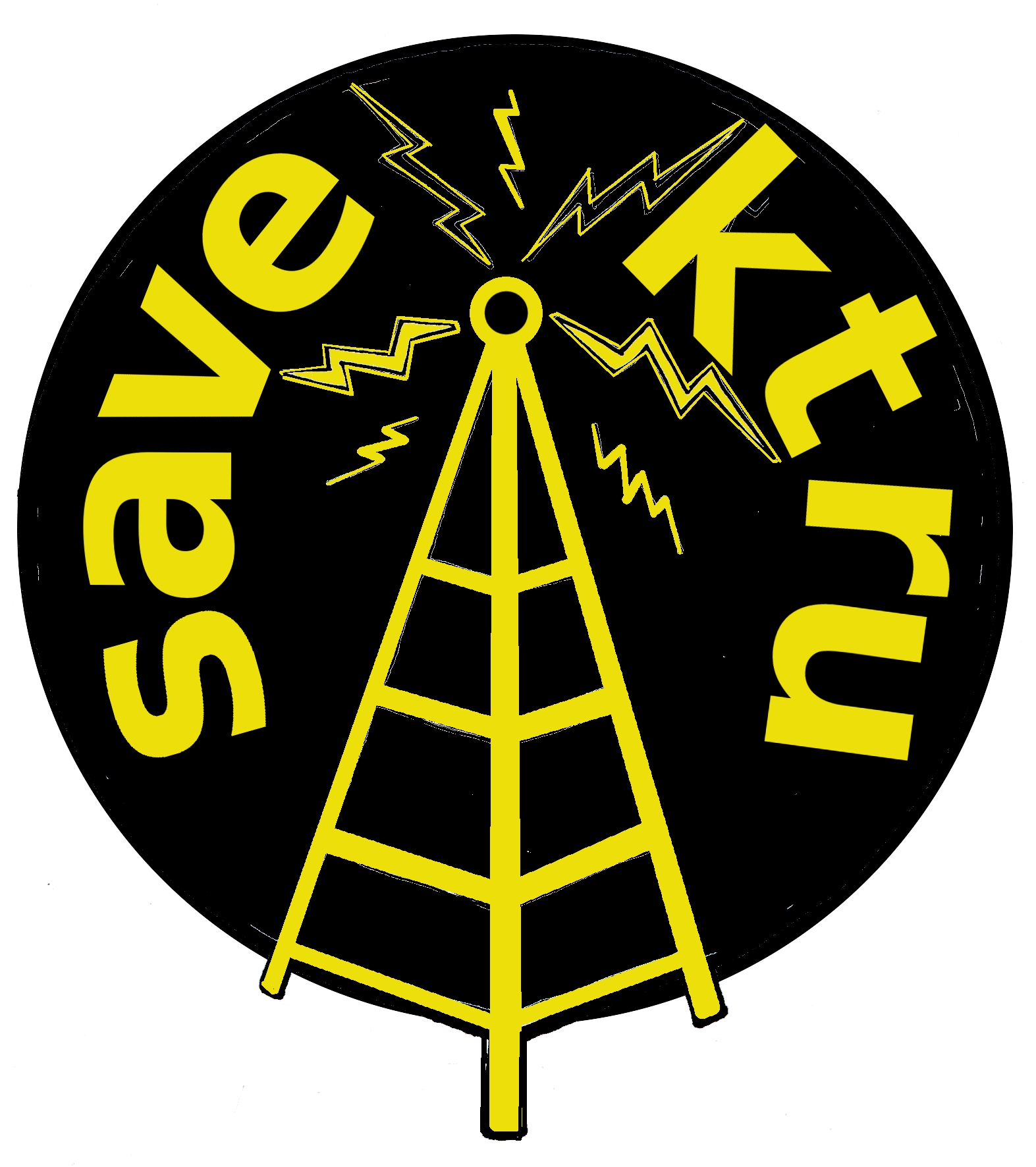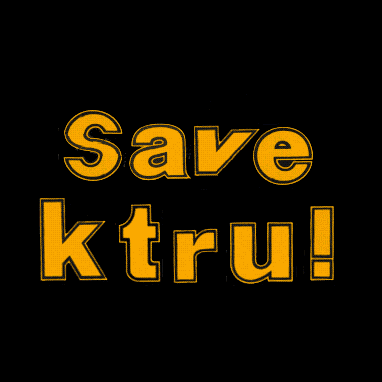My first day of Freshman Week in 1982, I met my advisors and the first thing I asked them was, “How do I get to the radio station?” Computer science was the “official” reason I selected Rice, the academic reason, but deep down I have to admit KTRU was the thing that really sucked me in.
I still remember my first training session, with a sophomore named Ray Isle. Ray would later become a close friend and roommate, and these days he gets paid to drink wine on national TV at six in the morning, but back then he was exactly what I wanted to be: a KTRU DJ. He showed me how the board worked, how to play a cart, how to cue up a record. Then he gave me a turn to sit in the chair and try it out and asked if I had any requests. “Joy Division,” I said. “‘Love Will Tear Us Apart'”. I knew all about Joy Division since I was a voracious reader of music magazines, but I’d never actually heard them. He dug out the 7″ single and I put on the headphones, dropped the needle on and then spun the record backward til I found the beginning of the song, just like he showed me. He made a little small talk while we waited; I mostly sat there terrified, and then when the last song faded out, I pushed the levels up and pushed the green PROGRAM button, and the little Joy Division record began to spin and that thumping bass line came through the headphones and I grinned.
“That wasn’t too terrible,” Ray said, but I wasn’t listening.
This. Right here. This was it. Not the student paper. Not the band. Not soccer, or softball, or yearbook, or theatre, or politics.
This. This cramped, grotty little cluster of tacky wood-paneled rooms in the basement of the RMC, with the ancient analog equipment and the falling-apart headphones and the squeaky chair and the weird graffiti. And the music library. The enormous, glorious music library. I fell into those stacks like Augustus Gloop falling into Willy Wonka’s lake of chocolate. Cool, the Cramps! Look, the Velvet Underground! Wow, Mission of Burma, what’s that, are they good?
I was finally home.
KTRU was the driving force that would eventually propel me through six years and two college degrees. My best lifelong friends are all people I met at KTRU. And together we learned about music, about business, about media and promotions and organization and scheduling and budgeting. We learned how to deal with people, how to compromise and reach consensus. Sometimes we didn’t learn as well as we should have, but goddammit, we learned.
And somewhere in all that craziness, all those late nights drinking beer and listening to records and arguing about music, we accidentally participated in a movement. A movement that would permanently change the face of the music industry forever.
Michael Azerrad’s landmark book _Our Band Could Be Your Life: Scenes From the American Indie Underground, 1981-1991_, documents the rise of American punk and indie rock during the 1980’s, a musical movement that burst into the mainstream in 1992 with Nirvana’s “Smells Like Teen Spirit”. In its formative years, this movement, made up of a loose network of small record labels, innovative musicians, small press fanzines, and college and non-commercial radio stations, provided the breeding ground and the DIY ethic for a revolution in music that dominates the music industry to this day. In the last four decades only the rise of hip-hop has had anything close to the same effect.
And KTRU was there. Rice students, using their own talents, their own sweat equity, helped make it happen. KTRU was invaluable in helping this musical culture flourish in Texas.
Somewhere out there, in the heads of a bunch of passionate music-minded middle schooler and high schooler and undergrad kids’ heads, is the next musical revolution. And KTRU can still be on the leading edge of this innovation and progress, but only if they are still around to do so.
My great fear is that if KTRU’s 91.7FM frequency and broadcasting tower are stolen out from under them, it will result in the eventual slow death of the station. For many reasons already well-documented elsewhere on this site, an Internet-only radio station simply does not have the influence and resources necessary to survive as a self-perpetuating ecosystem. The loss of the frequency will essentially gut the station’s programming. And it breaks my heart that my two brilliant, talented, music-loving teenagers, both of whom up until last week were considering Rice as a possible college destination, may not get to experience what I experienced.
Not at Rice, anyway. If they want what I had (and they do), and if Rice continues on this ill-advised course of action, they’ll have to go to Stanford, or MIT, or Berkeley, or Tulane, or Carnegie-Mellon. And I intend to encourage them to do so.
Ray Shea
Sid Richardson 1986/88


